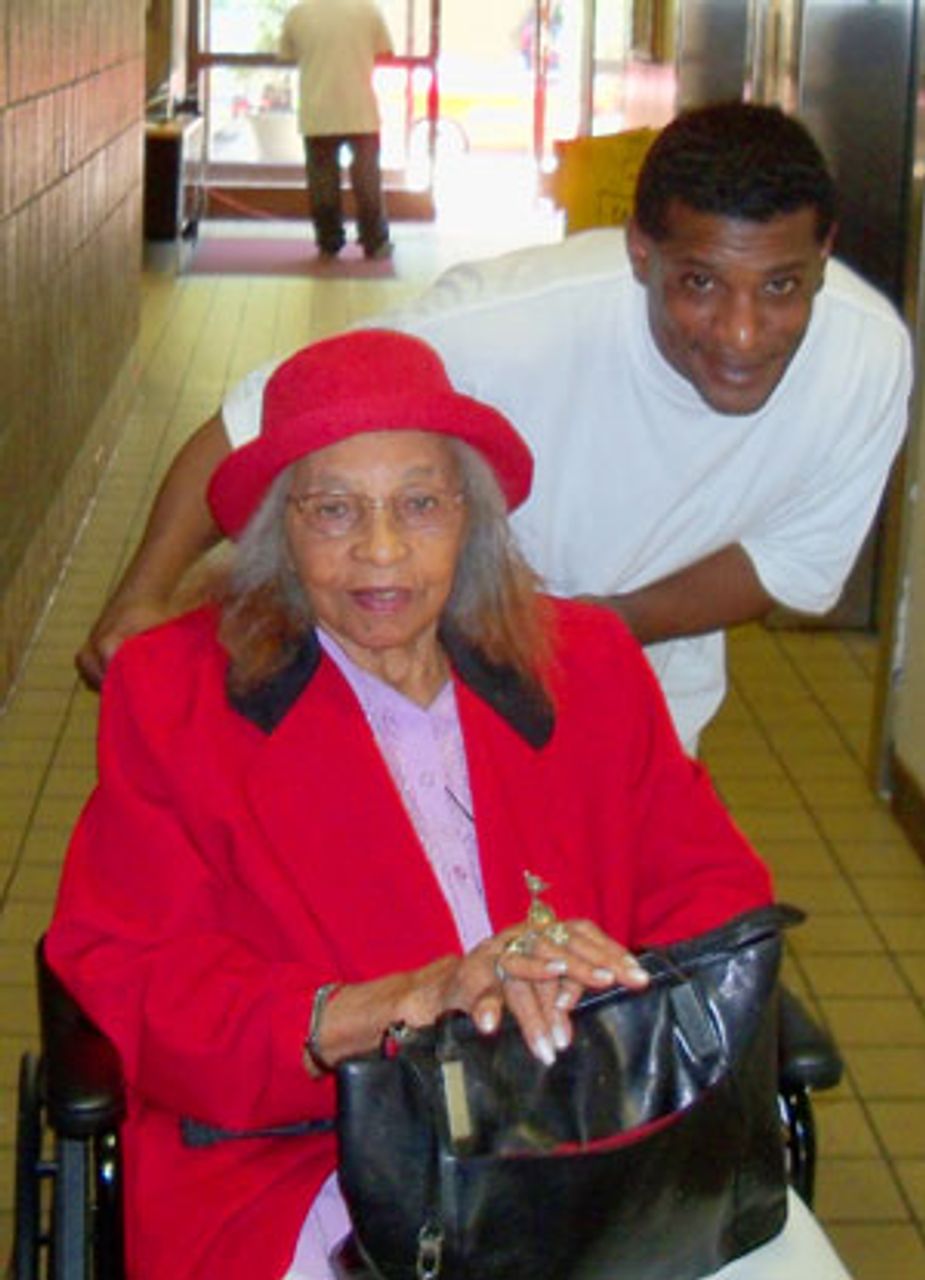Last month, New York City’s Department for the Aging announced that at least 50 senior centers are to be closed across the city by July 1. According to the Department’s commissioner, another 25 centers may also be closed if the city is unable to secure additional funding from the state government in Albany. There are over 300 senior centers across New York City’s five boroughs, out of which up to a quarter may be forced to close.
City officials have placed responsibility for the pending closures on the ongoing budget crisis in Albany. The planned closures are a result of Governor David Paterson’s proposal to redirect $25 million of federal funds reserved for senior centers to other state programs. In total, the governor’s proposal would cut funding for the city’s senior centers by almost 30 percent. “The threatened state cut would come on top of city budget actions that could cost the city’s Department for the Aging more than $63 million in funding,” according to the New York Daily News.
On May 6, the city released a list of the 50 centers that are to be closed by July 1. Manhattan will lose 16 of its senior centers, seven of them in Harlem alone. Nine senior centers are to be closed in the Bronx. Brooklyn residents will see 11 of their senior centers closed, while Queens will lose 10 of its centers. Staten Island, which already has the fewest senior centers, is set to lose four of its centers.
According to the New York Times, “The administration picked the 50 centers largely on the basis of three criteria: the fewest meals served, the fewest hours open and the most maintenance or management problems.” However, the closings will severely impact many of the city’s elderly residents who rely on the variety of services provided by the centers. The cuts will affect several programs offered through the centers including meals, rent assistance, transportation and home health care assistance. The closures are expected to affect over 6,000 elderly residents of the city.
The Bloomberg administration has been keen on reducing costs related to the senior centers for years. According to the New York Times, “Scott M. Stringer, the Manhattan borough president, questioned the motives of the administration, noting that Mr. Bloomberg tried, albeit unsuccessfully, to overhaul the city’s senior centers two years ago with a proposal to streamline operations and evaluate centers based on performance measures.”
According to the commissioner of the Department for the Aging, Lilliam Barrios-Paoli, approximately 30,000 New Yorkers visit senior centers each day. The centers provide free meals, social services, and companionship. For many of the city’s low-income elderly residents, food they receive at the center is their only meal of the day.
“It’s not just about a meal,” said Jessica Lappin, city councilwoman and chairwoman of the Committee on Aging. “These centers are second homes to isolated seniors. Many of these seniors sit at the same table, with the same friends, and there’s a lasting bond that develops that can’t be measured.”
The announcement of the closures generated anxiety among seniors who rely on the centers even before it was known which centers would be closed. Many people at Drew Hamilton Community Services Center in Harlem expressed their concern about the closures and emphasized how the meals and social services offered at the centers serve as lifelines.
“This is expected, excuse me for saying,” said Julia Smith, who was formerly employed as a paraprofessional for the city’s Board of Education. “I’m 80 years old, and I’ve seen how money works in this community. The first thing they do is target senior citizen centers. Ever since Bloomberg was re-elected, we have heard rumors about this place closing.”
On May 12, hundreds of seniors held a protest at City Hall against the slated closures. Protestors carried signs that read “Save our Senior Centers” and “We Need 1 Good Meal a Day.”
One protester, Rose Tamari, 84, has been visiting the Jasa West Side Senior Center for the last 20 years. She says the center has been a lifeline for her over the years and worries about what will happen if it is closed. “Since my husband passed away, I live alone,” she told WNYC radio, “and, honey, I come here to be with people so I feel that I’m alive.”
The closures will negatively affect some of the most vulnerable members of society. While elderly poverty has declined since the 1960s, the economic crisis is taking its toll on senior citizens in New York and around the country. A report released last month by AARP Public Policy Institute shed light on the difficult circumstances facing millions of elderly people around the country. The report, “Older Americans in Poverty: A Snapshot,” found that nearly 4 million older adults in the US are unable to meet their basic living expenses each day. Another 10 million adults over the age of 65 in the US are classified as “low income,” meaning their income is less than 200 percent of the Federal Poverty Level, which grossly underestimates the cost of living.
According to John Rother, AARP executive vice president for policy and strategy, “Poverty is widespread across the nation and it has been persistent even in a growing economy. Even with Social Security and other important federal benefits, there are too many older Americans today who are struggling to afford life’s basic necessities.”
The report also noted that among the elderly, women and minorities are the most affected by poverty. Twenty percent of older adults who are African-American or Hispanic are living in poverty. For the majority of older adults in poverty, Social Security accounts for most if not all of their family income. Moreover, many impoverished adults over the age of 65 find it difficult if not impossible to meet their basic health care expenses. The study found that 48.8 percent of poor and low-income older adults were burdened with health expenses that exceeded 20 percent of their family income. Older adults below the poverty line are twice as likely to report being in poor health than the general elderly population.
The economic crisis and the anti-working class policies of the ruling elite will further degrade the living standards of older adults. Even before the announced closures, New York City’s senior centers have been continuously plagued by underfunding. According to the Council of Senior Centers and Service of New York City (CSCS), the lack of funding “severely hampers the functioning of senior centers.” A report by the CSCS stated that many centers have difficulty providing popular services like computer classes and fitness programs due to limited resources, equipment, or trained staff.
According to the New York Times, each senior center costs only about $100,000 per year to run. In comparison, New York City first deputy mayor and close aid of Mayor Michael Bloomberg, Patricia E. Harris, received a $400,000 bonus for less than two months of “work” on the mayor’s recent re-election campaign. Bloomberg himself is the richest man in the city with a personal fortune estimated at $18 billion.
Faced with ballooning budget deficits, the city, state, and federal governments are seeking to make working people pay for the economic crisis generated by the financial aristocracy. Currently, 700 elders are on the waiting list in need of critical services, another vital program that was set to be cut on June 1, the deadline for the city’s budget. Last month, Mayor Bloomberg announced that, apart from shutting down the senior centers, 31 early childhood classrooms, 16 child-care centers, and adult literacy programs will be closed.
Reporters for the World Socialist Web Site spoke to seniors at the Cathedral Towers senior center which is sponsored by Citizens Care Committee, Inc. Located on the Upper West Side of Manhattan, the center is set to be closed by July 1. Workers and retirees were outraged by the announcement that the center was to be closed. They were in the process of collecting signatures for a petition to keep the center open.
 Carol Willis
Carol WillisCarol Willis, 67, voiced her concerns about the closure. “It’s very sad,” she said. “We need the centers. Many people here can’t cook their own meals because of disabilities. I don’t know what people are going to do if they shut down all the centers.”
She was also worried about no longer being able to socialize with her friends. “We all know each other here. I brought snacks for everyone on Mother’s Day,” she said. The financial impact of the center’s shutdown will be harsh, Carol warned. “If the centers shut down, people will have to go to restaurants which cost a lot more money. All I have to live on is my pension and my Social Security benefits.”
G. Estrada, 70, was worried about what would happen to the staff if the center was shut down. “The people who run this place are really nice, and I’m worried about what will happen to them if they lose their jobs,” he said. Mr. Estrada, a former truck driver, has been visiting the center for several years. “I’m really angry and depressed that it’s going to close,” he said. “The people who run this city just don’t care. I’m a diabetic, and this center has been able to meet my needs.”
Amantina, 72, said that it was unfair to close down the center. “It’s terrible that it’s closing,” she said. “The people who come here are really nice, and I really like the woman who runs this place. Many of us seniors around here need this place. People deserve at least one decent meal each day. It’s just not fair that they’re going to close this center and so many other senior centers.” When asked what she thought about Mayor Bloomberg, she replied, “I don’t like Bloomberg, he’s not a good man.”
 Effie Stroud and her grandson, Joel Browne
Effie Stroud and her grandson, Joel BrowneEffie Stroud, 93, has been visiting the center regularly ever since it opened over 20 years ago. “It’s very bad that it’s closing,” she said. “The people are nice here, and the food is good. It’s a home away from home. I think all the centers should stay open.” Effie also works part time at the center for which she receives a stipend. A former church worker, Effie receives no pension or retirement benefits and relies on her Social Security benefits alone to survive. When asked how she felt about the economic crisis, she replied, “I’ve never experienced a crisis like this.”
Her grandson, Joel Browne, added, “It would cost a fraction of what they gave to the banks to keep these places open. They care about banks, but not about people. They are closing down all the parks too; it’s messed up.”
